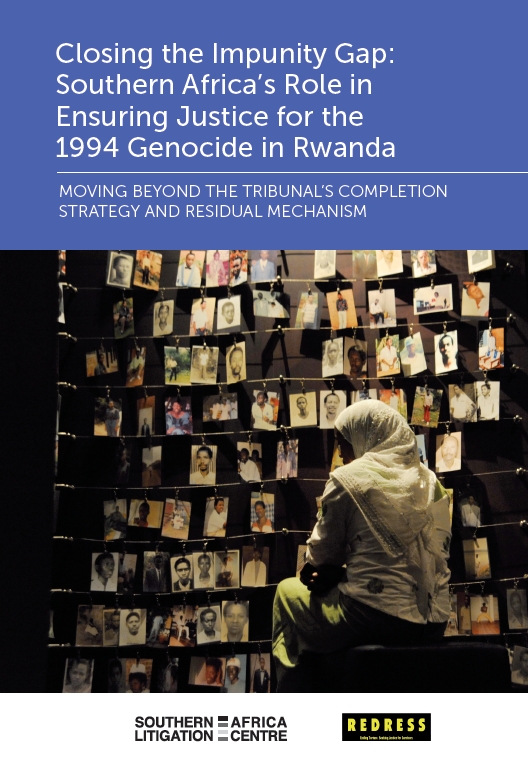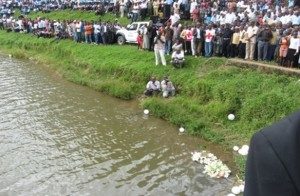
The Southern Africa Litigation Centre (SALC), REDRESS and African Rights have published a landmark report on “Closing the Impunity Gap: Southern Africa’s Role in Ensuring Justice for the 1994 Genocide in Rwanda.”
The report is based on a two-day conference which brought together key stakeholders and experts to explore ways and means of how Southern African states can address the presence of genocide suspects on their territory, and contribute effectively to the ICTR’s completion strategy and support its Residual Mechanism.
It is an important call to action. I highlight just one excerpt here which focuses on Ensuring Justice for Survivors (page 77):
In considering survivors’ access to compensation on an international level, Mr Schurr pointed out that the ICTR does not provide survivors with any avenues for compensation. The Tribunal’s statute does not allow survivors to participate in proceedings (other than as witnesses) and judges of the Tribunal cannot order convicted perpetrators to pay compensation to victims. While there is some scope for the Tribunal’s judgements to be used in national jurisdictions and so enable victims to bring actions before national courts to obtain compensation, in reality survivors’ access to compensation has not been facilitated. Recognising the Tribunal’s limited impact on survivors in Rwanda and abroad and the important role of compensation for survivors of the genocide, ICTR judges in 2002 proposed to the UN Secretary General at the time that a specialized UN agency be established “to administer a compensation scheme or trust fund that can be based upon individual application, or community need or some group based qualification.” The then President of the ICTR, Navanathem Pillay, in her address to the UNSC in October 2002 reminded the Council that “compensation for victims is essential if Rwanda is to recover from the genocidal experiences.” However, none of the proposals submitted by Judge Pillay or indeed others have to date been put into place.
Survivors are increasingly frustrated with justice processes and their lack of agency in these. Moreover, survivors fear that the closing down of the ICTR, as well as Rwanda’s gacaca courts, could mean that their right to reparation will be ignored forever. Efforts are currently under way within Rwandan civil society to engage the government of Rwanda in a discussion about the establishment of a compensation fund and to address the shortcomings of gacaca. Having prioritised until now the large task of bringing genocide suspects to justice, it remains to be seen whether Rwanda, and indeed, the international community, will now show similar vigour in providing survivors with adequate reparation.
The full report can be downloaded here.
In a related fascinating article on “How do you compensate war crimes?” on Radio Netherlands, Redress also comment on the importance of the right to reparation for the victims of war crimes, such as the survivors of the genocide in Rwanda. The article rightly concludes, “”Money, development projects or legal aid apart, there is one overriding issue for victims: recognition of the wrong the victim has suffered.”

